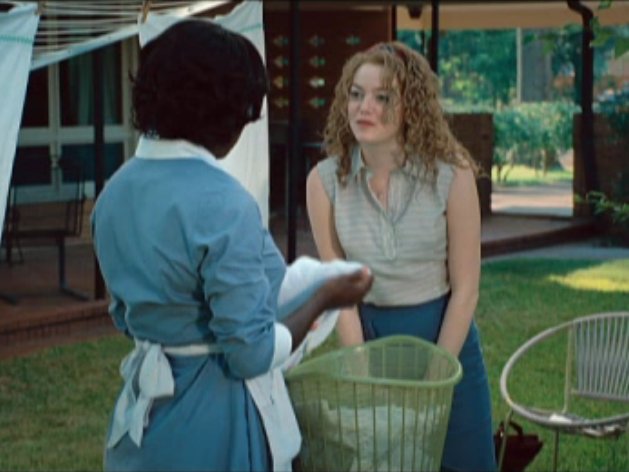"The Help" is a 1960s period piece (if it's not too early to call it that) that takes place in the Deep South during the Jim Crow years. It shows a life where black people are not confined to the constructs of slavery anymore, but something that closely resembles it.
Many black women at the time worked as maids in rich white people's households, fixing the meals, cleaning and practically raising the family's children for them. This is their story, and the hardships and humiliations that many of these women - and the culture as a whole - went through at the hands of their employers.
Taking place in Jackson, Miss., the film begins with Eugenia "Skeeter" Phelan, played by Emma Stone ("Zombieland," "Easy A"), returning home from college.
Skeeter begins her career as a journalist for the local newspaper as the "housecleaning" columnist. Knowing nothing about housecleaning, she asks a friends maid Abileen, played by Viola Davis ("Traffic"), if she could give her some pointers on what to write about. She soon discovers that her childhood friend Hilly, played by Bryce Dallas Howard ("Spiderman 3," "Twilight: Eclipse"), is particularly cruel to Abileen, despite everything that she does for their family.
Skeeter decides to start a side project in which she wants to hear about family life from the maid's, or "the help"'s, perspective. At first Abileen is reluctant to help Skeeter in fear she will lose her job. But when a particular incident sets her off, she goes with it full force.
Although "The Help" is billed as a comedy, it is not without its moments of heart-wrenching drama. Hilly and her brood of racist Stepford Wives create the ultimate antagonists: the kind of people whose faces smile but their eyes do not. Director Tate Taylor does an excellent job of building the relationship that Abileen has with the children of the people that consider her an inferior human, only to watch them grow up and become the exact same way.
The film's comedy usually comes in the form of fellow maid Minny Jackson (Octavia Spencer), an outspoken woman who only keeps her mouth shut during times when it would put her job in jeopardy. When it turns out that she ends up losing her job anyway, she gets the ultimate payback that serves as a catalyst for Skeeter and Abileen to question whether what they are doing will get them thrown in jail.
"The Help" portrays an interesting aspect of African-American life in the 1960s South. The characters at first come off as cookie cutouts of stylized characters in these sorts of movies (think "Remember the Titans," "Men of Honor" and "Driving Miss Daisy").
Regardless, Davis's performance takes the forefront of the film and we begin to try to understand a time that is not far off from our own. We begin to see two separate cultures that are so interwoven; yet so incredibly torn apart. We learn these things from the past, and hopefully they help us make the right choices for the future.
Ever since the day he was the proud owner of a letterbox copy of "Pulp Fiction" on VHS, Casey Buchanan has always been a cinema nut. He has no hang-ups about what type of movie he can watch. The terrible, as well as the acclaimed, are all in the ballpark.
A movie collection spanning over 15 years of digging in Goodwill bargain bins and garage sale shoe boxes to acquire such gems as "The Rock and Roll Wrestling Woman Versus the Aztec Mummy Monster" and "The Incredibly Strange Creatures Who Stopped Living and Became Mixed up Zombies," Casey does not discriminate when it comes to anything that can be recorded on film.
When Casey is not hunkered down on the couch for the usual "Zombie Nightmare Triple Feature" the former Army infantryman is on Water Street, either working the door protecting you from dirt balls, or sucking back High Life and cheap whiskey singing all the words to every Dropkick Murphy's song.
It's never a dull moment when you have the "Death Proof" logo tattooed on your leg.




